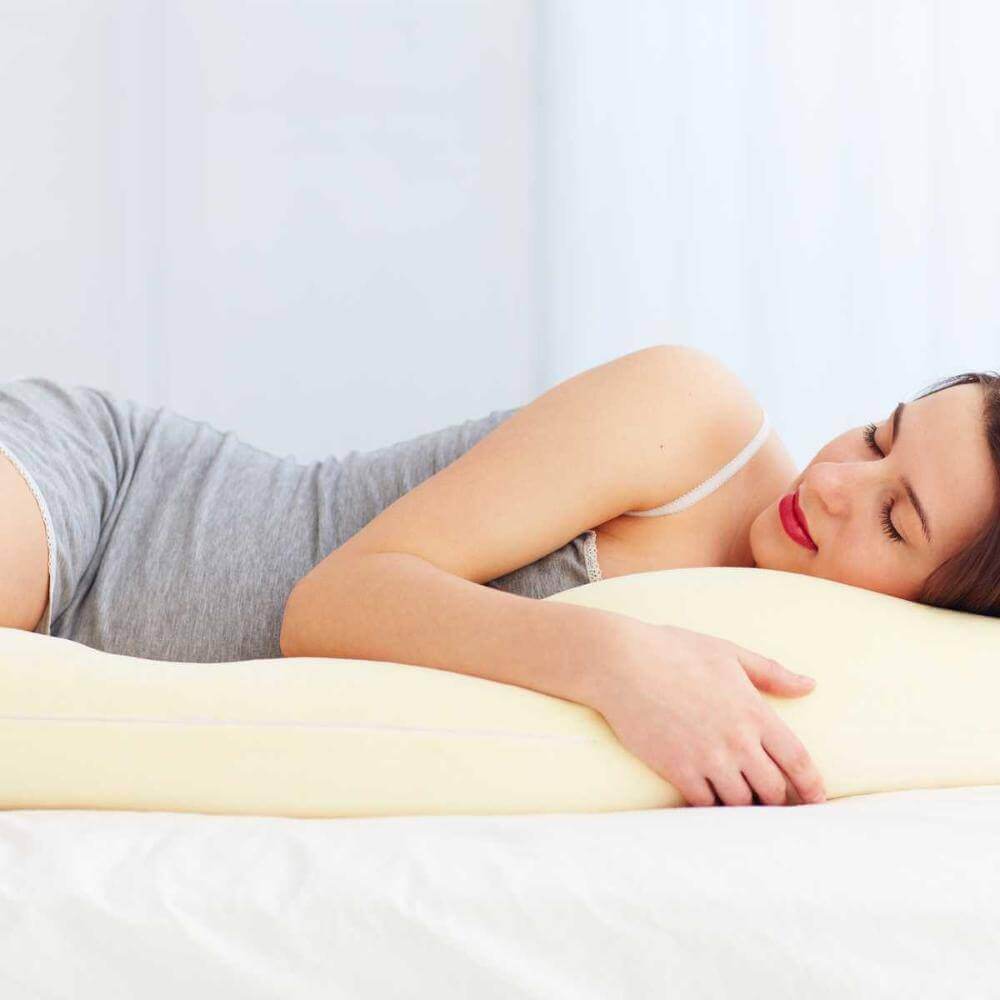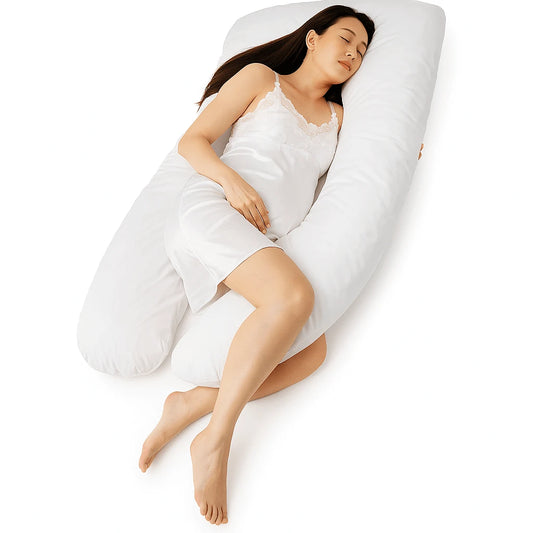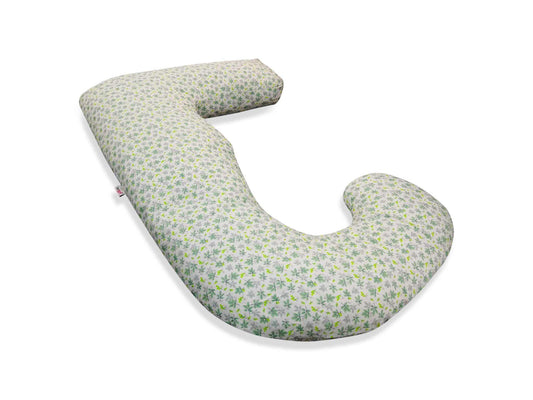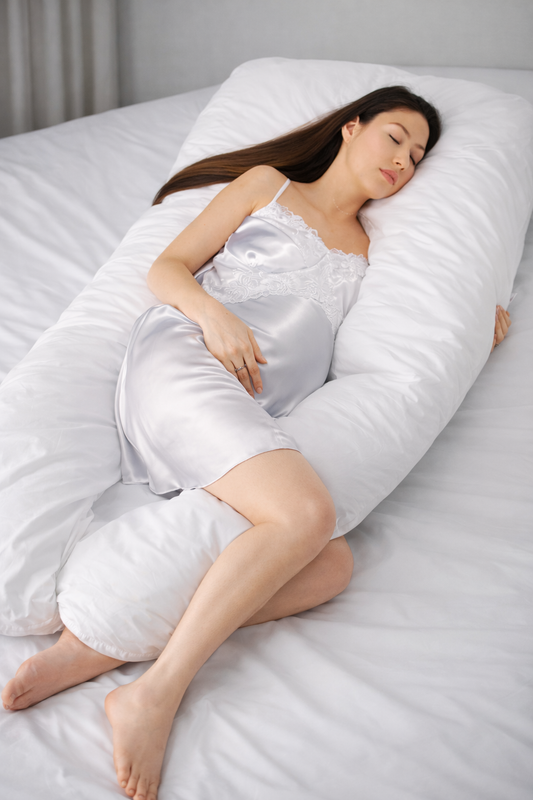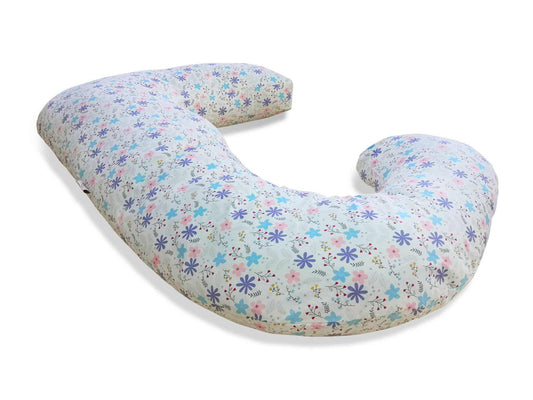Comprehensive Guide to Comfortable Sleep

The Ultimate Guide to Better Sleep
– How to Improve Sleep Quality Naturally!
Say Goodbye to Tossing and Truning!
Tired of tossing and turning all night? Waking up feeling like you barely slept? You’re not alone! Sleep is essential, yet so many of us struggle to get enough quality rest.
But here’s the good news: better sleep isn’t just a dream. By understanding how to improve sleep quality naturally, you can wake up refreshed, energized, and ready to take on the day—without needing three cups of coffee first.
In this guide, we’ll cover:
• How sleep cycles work and why they matter
• The role of deep sleep (your body's repair time) and REM sleep (the stage where you dream)
• Common sleep disorders and how they affect health
• The connection between sleep and mental well-being
• How the right sleep accessories, like body pillows, can help you sleep like a baby
Understanding Sleep Cycles
Think of sleep like a movie with multiple scenes. Each scene (or stage) plays a different role in keeping your body and brain healthy. A full night’s sleep means cycling through these stages multiple times.
• Light Sleep (NREM Stage 1 & 2): Your muscles relax, your breathing slows, and you start drifting into dreamland.
• Deep Sleep (NREM Stage 3): This is where the magic happens! Your body repairs itself, boosts the immune system, and strengthens memory. The benefits of deep sleep for health include better focus, faster recovery, and waking up feeling truly rested.
• REM Sleep (Rapid Eye Movement – Dream Stage): Your brain is on fire (in a good way). This is when you dream, process emotions, and get a creativity boost.
• Each sleep cycle lasts about 90 minutes, and your body repeats it four to six times a night.
How to Improve Sleep Cycles
• Stick to a schedule: Going to bed and waking up at the same time every day trains your body to sleep better. It’s one of the best ways to improve sleep quality naturally.
• Skip the long naps: Power naps are great, but anything longer than 20-30 minutes can backfire.
• Turn off the screens: Blue light from phones, tablets, and TVs messes with melatonin (your sleep hormone), making it harder to fall asleep.
The Importance of REM Sleep (Dream Sleep)
• Memory processing: Your brain organizes what you learned that day.
• Emotional reset: Lack of REM sleep can make you more stressed and anxious.
• Boosts creativity: Ever woken up with a great idea? Thank REM sleep!
How to Improve REM Sleep
• Create a bedtime routine: Read a book, take a warm shower, or listen to calming music before bed.
• Get enough sleep: If you cut sleep short, you miss out on valuable REM cycles.
• Avoid alcohol and caffeine late at night: Both can mess with REM sleep, leaving you groggy the next day.
Deep Sleep: The Body’s Repair Phase
• Repairs muscles after a long day.
• Strengthens the immune system to fight off sickness.
• Releases growth hormones for overall body health. The benefits of deep sleep for health also include lower stress and improved brain function.
How to Improve Deep Sleep
• Cool it down: Your body sleeps best at 16-19°C (60-67°F).
• Avoid caffeine and big meals at night: These can interfere with deep sleep.
• Make your room a sleep sanctuary: Dark, quiet, and cozy = better sleep.
Sleep Disorders and Their Impact on Health
• Insomnia: Trouble falling or staying asleep.
• Sleep Apnoea: Breathing stops and starts during sleep, often causing loud snoring.
• Restless Legs Syndrome (RLS): An uncontrollable urge to move your legs at night.
• Parasomnias: Sleepwalking, night terrors, and other sleep disturbances.
Signs You May Have a Sleep Disorder
• Waking up exhausted, even after 7-9 hours of sleep.
• Snoring or gasping for air at night.
• Feeling drowsy throughout the day.
• Trouble focusing or remembering things.
The Connection Between Sleep and Mental Health
• Increase stress and anxiety.
• Cause mood swings and irritability.
• Worsen depression symptoms.
• Make it harder to focus and be productive.
Ways to Improve Sleep for Mental Well-being
• Relax before bed: Try meditation, deep breathing, or journaling.
• Avoid stressful activities at night: Give your mind time to wind down.
• Stick to a routine: Your brain loves consistency!
The Role of Sleep Accessories in Enhancing Sleep Quality
• Body pillows: Provide full-body support, improve spinal alignment, and reduce pressure on joints.
• Memory foam pillows: Adjust to your head and neck for maximum comfort.
• Weighted blankets: Help ease anxiety and promote relaxation.
• Blackout curtains and sleep masks: Block out light for deeper sleep.
• The best sleep accessories for better rest not only provide comfort but also contribute to long-term sleep health.
Steps to Take for Better Sleep
• Stick to a consistent sleep routine.
• Create a relaxing bedtime ritual.
• Use high-quality sleep accessories. The best sleep accessories for better rest can seriously upgrade your sleep game!
• Address any underlying sleep issues.
